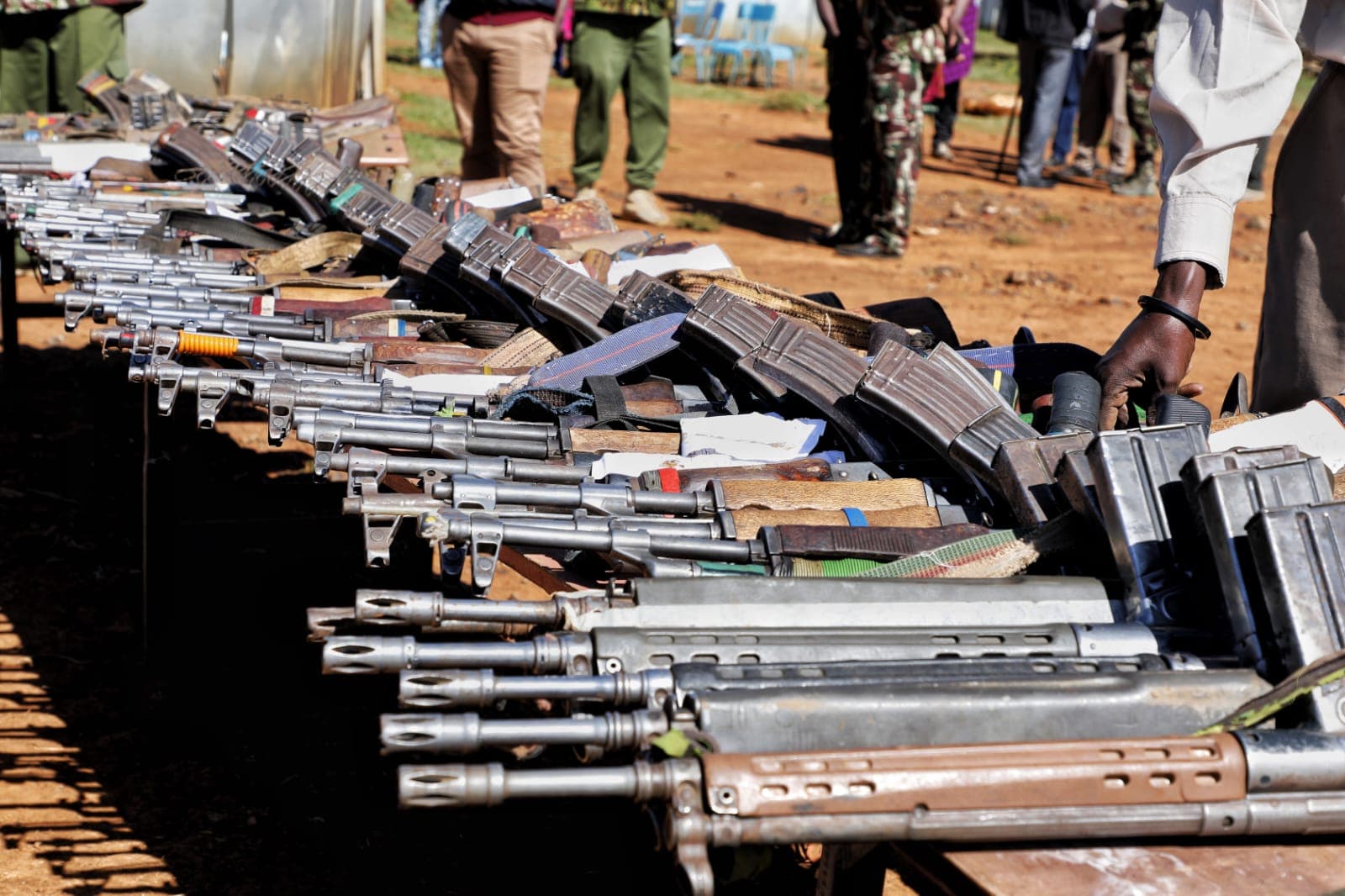We're loading the full news article for you. This includes the article content, images, author information, and related articles.
President Ruto issues a stern warning to remaining holders of illicit arms, vowing to end decades of banditry that has crippled the region's economy and social fabric. This disarmament drive is critical for Kenya's internal security and development agenda.

The Kenyan government has recovered 602 illegal firearms in the volatile Kerio Valley, a significant step in a renewed effort to quell decades of insecurity that has plagued the North Rift region. During a tour in Baringo County on Tuesday, 28 October 2025, President William Ruto issued a stark ultimatum to individuals still possessing illicit weapons: surrender them or face decisive action from security forces.
“We know everyone who has a gun, and we are going to come for it,” President Ruto stated emphatically to residents in Kabarnet town. “We cannot continue being a county of widows and orphans.” The President’s remarks underscore the severe human cost of the long-standing conflict, which has been fueled by cattle rustling, inter-communal clashes over resources, and the proliferation of small arms.
The Kerio Valley, which spans Elgeyo Marakwet, West Pokot, and Baringo counties, has for years been a theatre of violence, leading to countless deaths, displacement of communities, and the disruption of livelihoods. The conflict has crippled socio-economic development, forcing the closure of schools and markets and rendering vast agricultural lands unusable. A 2024 report from the Parliamentary Committee on Administration and Internal Security highlighted that despite numerous government interventions, including the launch of 'Operation Maliza Uhalifu' in February 2023, significant challenges remain. The report cited rugged terrain, the commercialization of banditry, and underlying socio-economic factors like poverty and unemployment as major obstacles.
The recent disarmament figures represent a notable success for the ongoing 'Operation Rudisha Bunduki'. Interior Cabinet Secretary Kipchumba Murkomen confirmed that of the 602 firearms recovered, 120 were from Baringo County alone. This follows earlier reports from the National Police Service (NPS) in October 2025, which stated that 282 firearms and over 2,000 rounds of ammunition had been surrendered under the amnesty program. Church leaders and local officials have lauded the progress, noting a return to normalcy with the reopening of markets and schools that had been shut for years.
The roots of insecurity in the Kerio Valley are multifaceted. Historical grievances, competition for scarce resources like water and pasture exacerbated by climate change, political incitement, and a lucrative black market for weapons have created a cycle of violence. The porous borders with conflict-ridden nations like South Sudan and Ethiopia have facilitated the steady flow of illicit arms into the region. Research indicates that the availability of guns has transformed traditional cattle rustling into a highly organized and violent criminal enterprise. CS Murkomen has previously acknowledged that rogue elements within the security forces and local communities, including professionals and business people, have aided banditry by supplying ammunition and intelligence.
While the recovery of firearms is a crucial step, analysts and past experiences suggest that disarmament alone is not a panacea. Previous disarmament efforts have often failed to yield lasting peace because they were not coupled with holistic development plans to address the root causes of conflict. The government's current strategy appears to recognize this, with President Ruto's visit to Baringo also involving the launch of development projects, including affordable housing and the inspection of major roadworks. These initiatives are aimed at opening up the region, boosting economic activity, and providing alternative livelihoods to pastoralist communities.
The President has linked the renewed development focus to a political pact with KANU Chairman Gideon Moi, framing it as a move to foster unity and accelerate growth. However, the long-term success of the peace efforts will depend on sustained security operations, addressing the socio-economic grievances of the local population, and effectively disrupting the cross-border arms trade. As the government intensifies its crackdown, the key challenge remains transforming the security gains into a durable peace that allows the communities of Kerio Valley to finally rebuild their lives and unlock the region's immense economic potential.
Keep the conversation in one place—threads here stay linked to the story and in the forums.
Other hot threads
E-sports and Gaming Community in Kenya
Active 8 months ago
The Role of Technology in Modern Agriculture (AgriTech)
Active 8 months ago
Popular Recreational Activities Across Counties
Active 8 months ago
Investing in Youth Sports Development Programs
Active 8 months ago
Key figures and persons of interest featured in this article